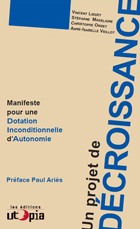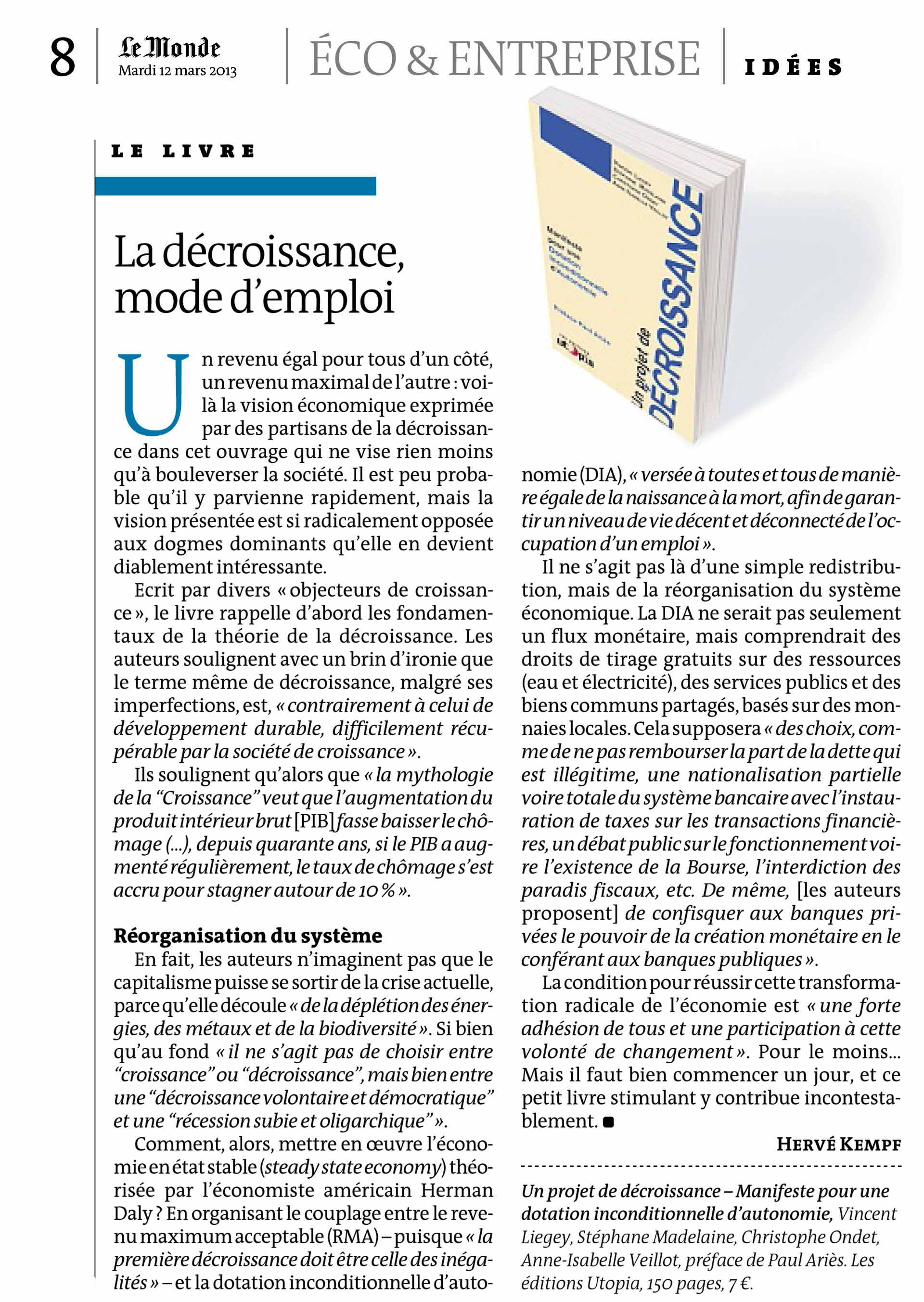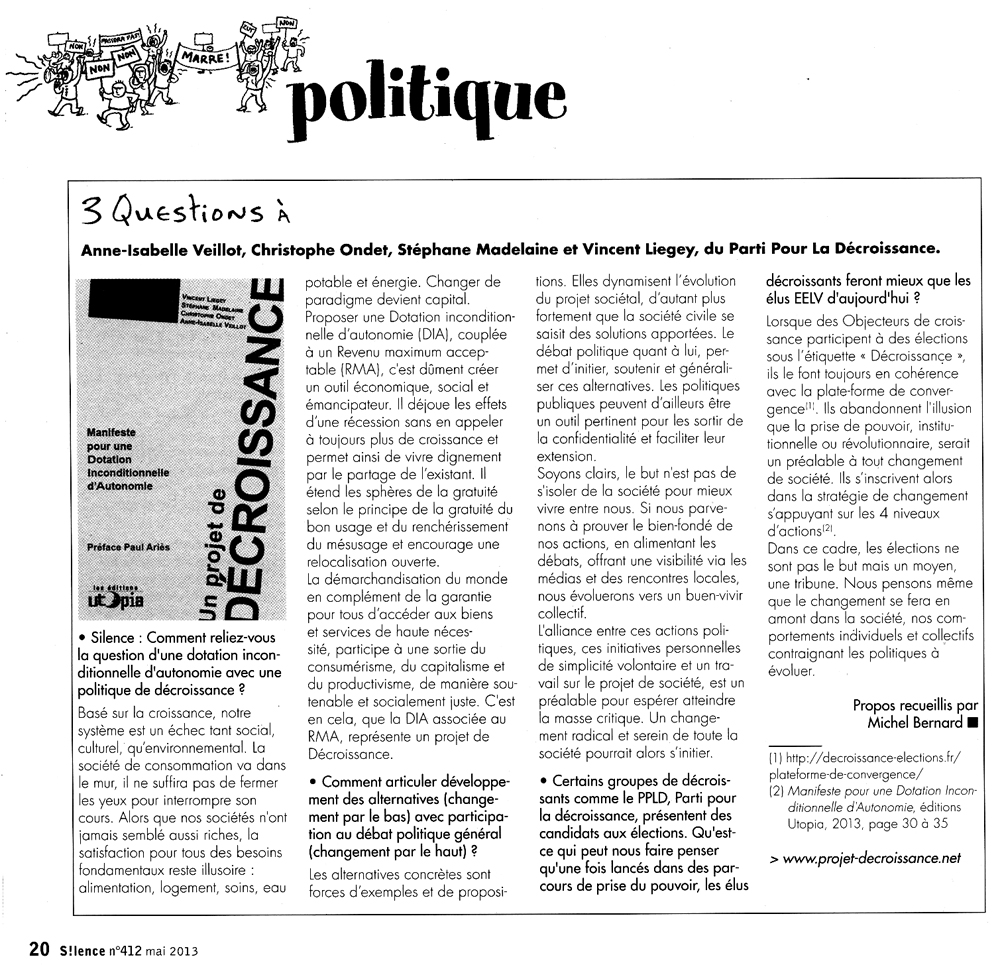 Back from Hungary, a sojourn in Paris is an opportunity to see that – everywhere the atmosphere is positive and there is a push for change.
Back from Hungary, a sojourn in Paris is an opportunity to see that – everywhere the atmosphere is positive and there is a push for change.
Vincent Liegey –February 5th 2013
The transition is on its way! It’s the heading we use for the inserts in our book, Manifeste pour une Dotation Inconditionnelle d’Autonomie (A Degrowth Project – Manifesto for an Unconditional Autonomy Allowance) to present a vast and varied range of practical alternatives.
Back in France for a week, that’s what I have been able to observe during all my encounters. Almost everywhere we are witnessing a silent transformation of society, not only in France: I made similar observations in Hungary, my place of residence, as well as along my travels.
More and more people are coming to grips with the physical and anthropological limits of our growth society. More and more people feel uncomfortable with consumerism, even more so with the demeaning of work, and with the disastrous fallouts of the austerity plans, and to what we call the religion of the economy. On the less and less people believe in representative democracy, in political and media elites and the party system.
Then, we are wondering and, moreover, we try to act. At the individual and/or collective levels, attitudes are changing: we are experimenting.
We launched our book at the Shakirail: a self-managed Parisian alternative space, in coherence with the ideas we are developing and the way of life we are trying to live.
There, I met members of the Transition movement and of the collectives of Notre Dame des Landes, Occupy and démocratie réelle (real democracy). We are all asking the same questions and are trying to put in practice what could be tomorrow’s sustainable, and most importantly, desirable societies. They are experimenting different democratic ways, collective living and decision-making.
I also met people from movements and political parties such as the Pirate Party (liquid democracy: more transparency and a greater citizens’ control over the elected representatives), Parti de Gauche (PG – Left Party) and Europe-Ecology-Les-Verts (EELV); all rely on accessing the institutional power to change society: the PG through its desire to overtake the Socialist party, and EELV through compromise and by taking part in the government.
I also met people from ATTAC: they are investigating ways to establish links between social and unionist movements at the European level, to break away with the technocratic and oligarchic Europe that is implementing one austerity plan after another. I also conversed with people from the Alternatifs (Solidarity, Ecology, Self-management, Feminism: within a logic of convergence between the green and the red).
All, with their political culture and history are trying to deal with their contradictions. But all ask the same questions and show a certain humility vis à vis the limits of their approaches: to take part in the more or less centralised and participatory institutional game (see for example the discussion between the PG and the EELV),
How can we back up this willingness to do politics differently, to break away from models imposed upon us by centralised institutions and from a democracy limited to its representative functions and, at the same time, to demonstrate a certain kind of realism: whether we like it or not, we are living in these types of societies!
Within the Degrowth movement, over the years we have been discussing, thinking and debating this notions of power or how we can change society within seizing power. We rely upon the strategy of the critical masse articulated around the 4 political levels of Degrowth:
- The collective level: through practical alternatives, proposed in the book.
- The project level: a transition project and also a reflection on what Degrowth societies could look like.
- The visibility level: organising of meetings/debates, demonstrations, media exposure, participating to the elections in a non-electoralistic manner.
- The individual level: through voluntary simplicity and the decolonisation of the imaginary.
The stakes for our movement, but also generally for all the individuals, collectives, movements and political parties that are trying to build alternatives to a society in full anthropological crisis, are to play the game of maintaining an equilibrium; to be, at once, both inside and outside the system.
To cultivate this diversity of approaches whilst searching for equilibriums and convergences, we need to cooperate on common projects; possibly some in conflict situation, such as Notre Dame des Landes or against shale gas, to organise debates and conferences, to pool tools, to participate to elections, to have our own elected representatives, and to offer critical and punctual support to majorities.
The stakes are to construct a political movement, in rupture with the dominant model and worldview but able to overthrow it in favour of a logic of transition. We need to invent new models, built around an horizontal network of collectives, people and groups, local and/or thematic, diverse and varied.
Transition is truly underway…. But it is confronted with institutional resistance, blind and always more violent!
Last Wednesday, I attended the launch of the (R)evolutions organised by the Colibris movement. It was very well attended and enthusiasm was high. Most of us pursued the meeting in the street, mingling with people, engaging in passionate discussions and, most importantly, in a positive and constructive spirit .
Similarly to the Transition movement, the Colibris reject politics, elections, even the institutions. This stance allows citizens wishing to act and stay away from the depressing pugilistic politics. In this manner, they participate to a re-politicisation of society by practising the original politics: the re-appropriation of the life of the city at a local level.
These movements take part in this silent transformation, build and implement alternatives. They are opening new “possibles”.
But we need to tackle the question of institutional violence we are confronted with: for example Notre Dame des Landes, or like Naomi Wolf revealed in the Guardian a few weeks ago: how the FBI, Homeland Security and the big banks have literally destroyed the movement Occupy Wall Street.
Is it possible to remain non-violent when confronted with a system getting deeper and deeper into its own blindness, where oligarchy and lobby groups are exerting an ever- greater control over the population, where all the Western states prepare their armies and police for urban combat, where inequalities are becoming unbearable and austerity plans continue to plague citizens and what remains from our institutions such as education and health.
More than ever, we will have to collaborate, resist, and build this serene and democratic transition together towards new sustainable and desirable societal models. And this transition is underway… from inside and outside the system. Let’s collaborate!
Vincent Liegey co-authored Un projet de Décroissance, Manifeste pour une Dotation Inconditionnelle d’Autonomie (A Degrowth Project, Manifesto for an Unconditional Autonomy Allowance), is a member of the Parti Pour La Décroissance (PPLD – Degrowth Party) and a PHD student at Budapest University of Economics.

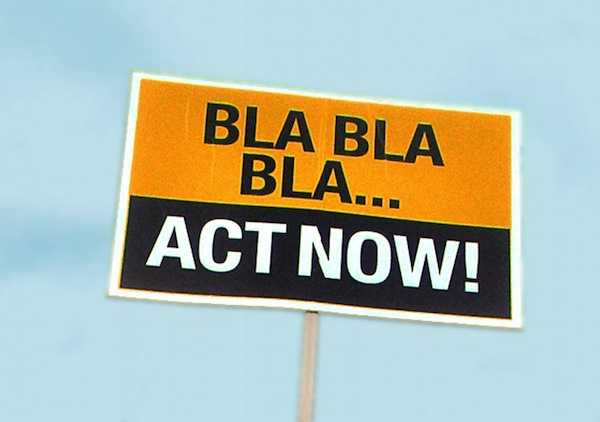
 The citizens’ initiative aims at: “Asking the Commission, to encourage cooperation between the Member States aiming to explore the Unconditional Basic Income (UBI) as a tool to improve their respective social security systems.
The citizens’ initiative aims at: “Asking the Commission, to encourage cooperation between the Member States aiming to explore the Unconditional Basic Income (UBI) as a tool to improve their respective social security systems.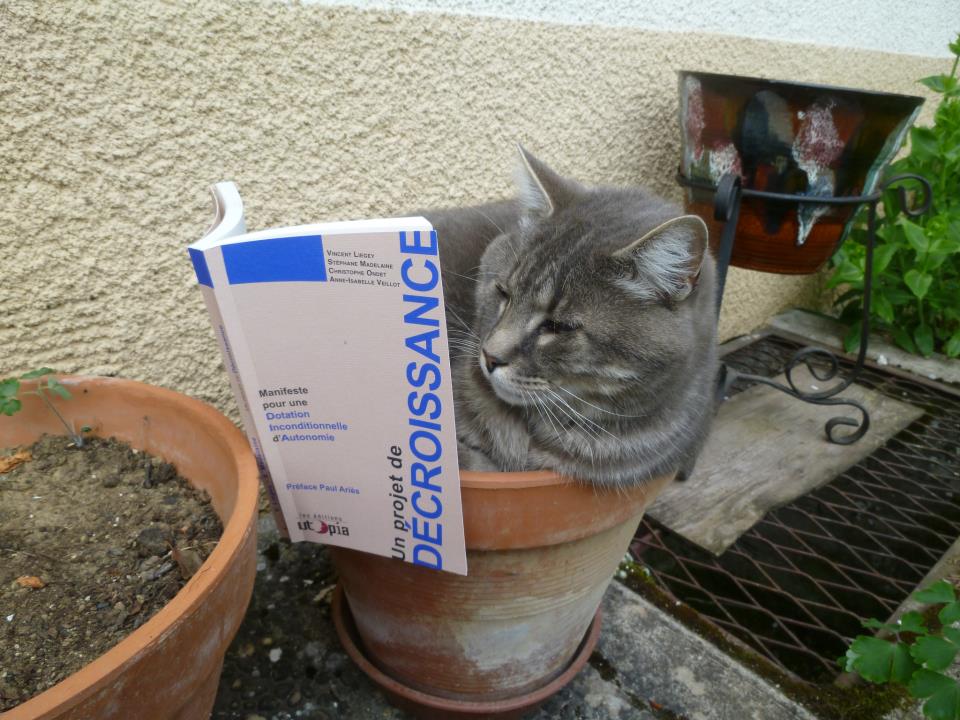



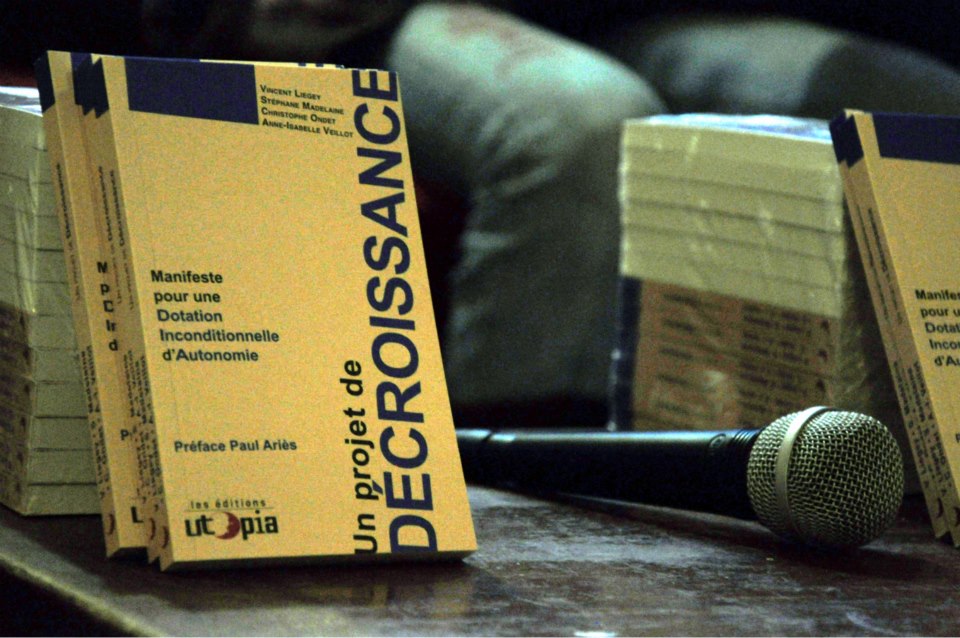
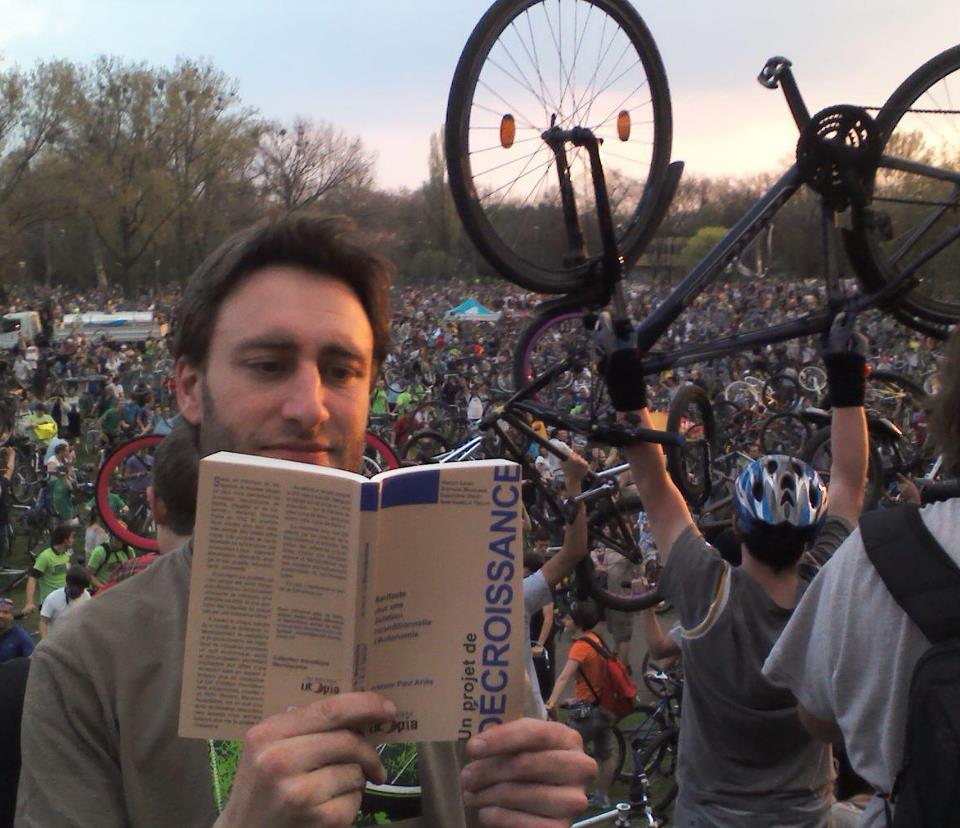
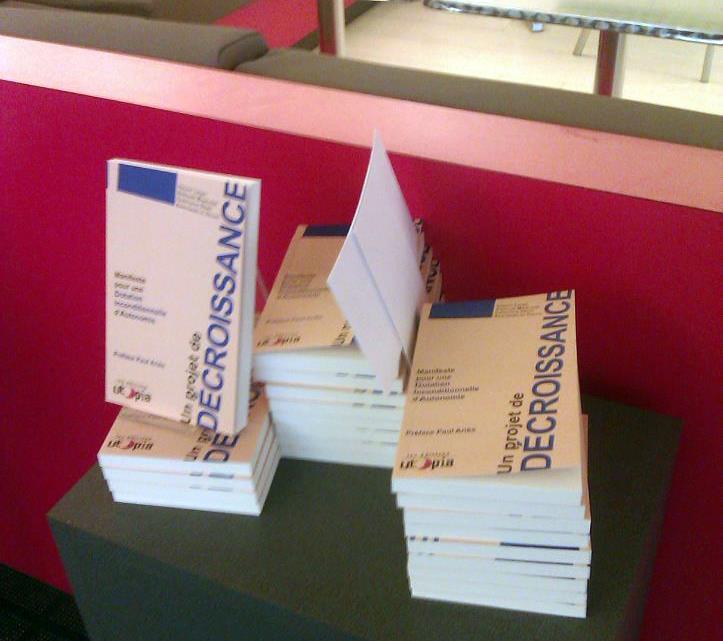
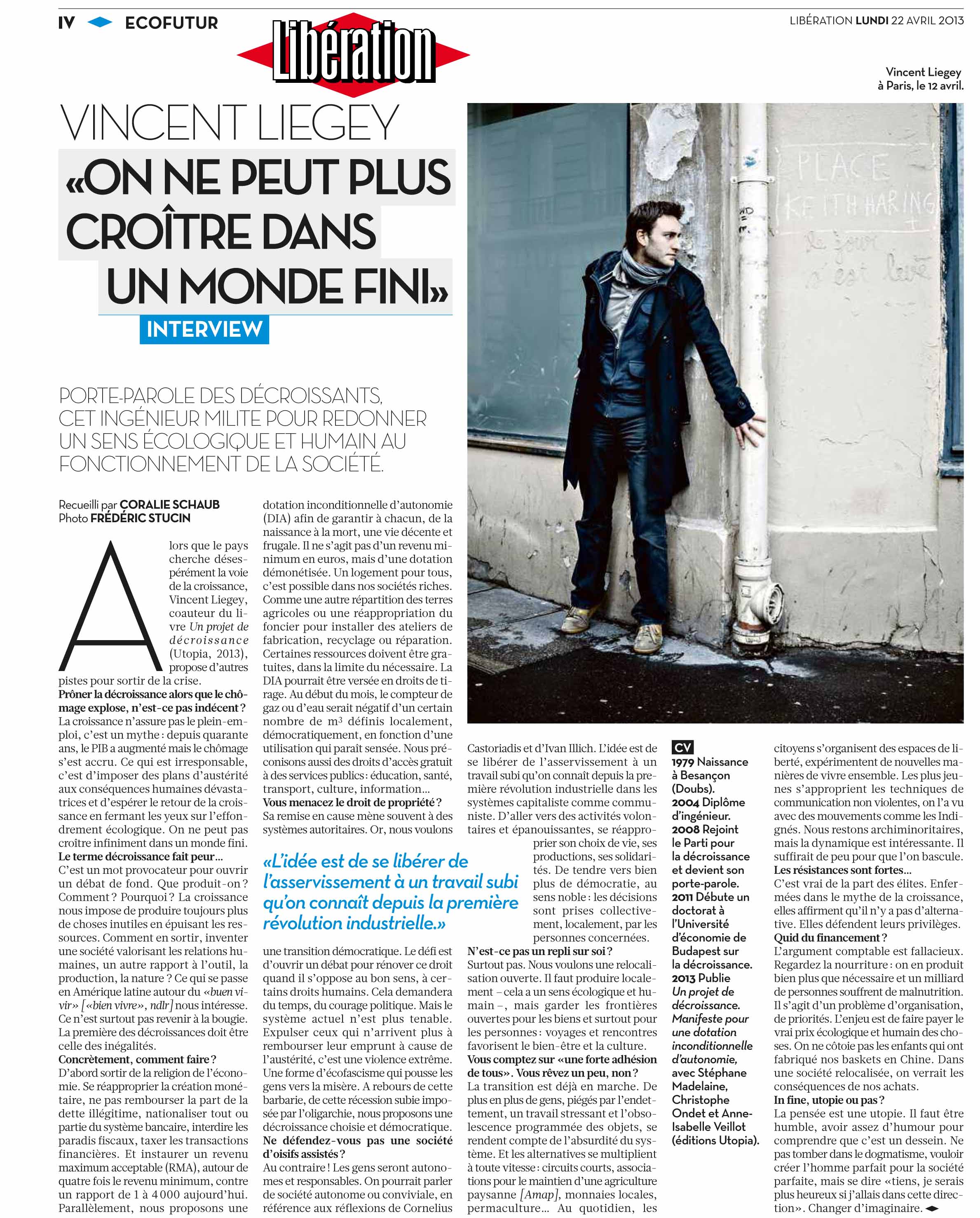
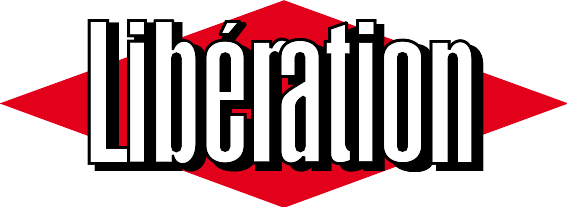 Vincent Liegey: «On ne peut plus croître dans un monde fini»
Vincent Liegey: «On ne peut plus croître dans un monde fini»
